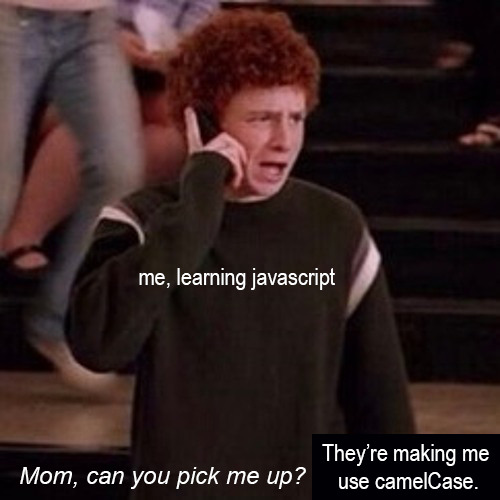#to Learn SQL
Explore tagged Tumblr posts
Text
0 notes
Text
me because i'm unemployed and crazy: “here's a worksheet where you can see what the rally people do before they started their career fulltime !”
only get my hands on info of like 50 people and also the numbers are heavily skewed towards finns and frenchies. because .. duhh
charts breakdown part ! (this is just a part where i yap)

unsurprisingly many drivers had a career right in motorsports or some motorsports-related jobs like mechanics/engineers (started driving at a very young age, too). but also there's quite a portion of them studied law or practiced law previous to making a career out of racing. maybe driving 125km/h is the perfect way of destressing after memorising 300 lines of civil law 🙏
now about co-drivers. most of them studied engineering or even had really successful corporate jobs. like jonne halttunen is literally a ceo and he prolly has enough money to provide for kalle for the rest of his life lol. besides that we have the sportsplayers who switched over after some injury (enni included) or the military people - tina thörner was one of the first women to make it into the swedish air force and guy frequelin was a tank driving instructor ! so basically co-drivers be having the craziest sidejobs ever…

now since i have the most data for finland and france: voilà! comparison chart ! (co-drivers included)
apparently finns (and drivers in nordic countries) can have a professional rallying career at a very early age - usually they do this with external funding or working as a developer/driving instructor for car manufacturers. meanwhile most frenchies dabbled in a lot of jobs or struggled financially before they can have a full-time seat.
#the collecting info part is ok. but why tf do i have to learn sql to make the chart#also during this i found out actually the old finns are not in hiding. they actually yap a lot in podcasts and interviews#we just need to listen to them. in finnish …#also ilkka is a principal of a national coaching program for codrivers lol. what do you think abt running for fia presidency ilkka …#random banter
22 notes
·
View notes
Text
🤩Are you a CS Student !?!???? 🥳🤩😎CHECK OUT THESE-
No. No I’m not. I study at home.
101 notes
·
View notes
Text
Life update -
Hi, sorry for being MIA for a while and I'll try to update here more frequently. Here's a general update of what I've been up to.
Changed my Tumblr name from studywithmeblr to raptorstudiesstuff. Changed my blog name as well. I don't feel comfortable putting my real name on my social media platforms so I'm going by 'Raptor' now.
💻 Finished the Machine Learning-2 and Unsupervised Learning module along with projects. Got a pretty good grade in both of them and my overall grade went up a bit.
📝 Started applying for data science internships and jobs but got rejected from most of the companies I applied to... 😬
I'll start applying again in a week or two with a new resume. Let me know any tips I can use to not get rejected. 😅
💻 Started SQL last week and really enjoying it. I did get a bad grade on an assignment though. Hope I can make up for it in the final quiz. 🤞
🏥 Work has been alright. We're a little less staffed than usual this week but I'm trying not to stress too much about it.
📖 Currently reading Discworld #1 - The Color of Magic. More than halfway through.
📺 Re-watched the Lord of The Rings movies and now I'm compelled to read the books or rewatch the Hobbit movies.
"There's good in this world, Mr Frodo, and it's worth fighting for." This scene had me in tears and I really needed to hear that..
📺 Watched the first 4 episodes of First Kill on Netflix and I don't know what I was doing to myself. The writing and dialogue is so cheesy and terrible. The acting is okay-ish. It's so bad that it turned out to be quite hilarious. Laughed the whole time.
🎧 Discovered a new (for me) song that I'm obsessed with right now - Mirrors by Justin Timberlake.
📷 Took some really cool pics on my camera..





Might start the 100 days productivity challenge soon as that is the only way I find myself to be consistent.
Peace ✌️
Raptor
PS. Please don't repost any of my pictures without permission.
#study with me#study blog#studyblr#study motivation#study#study inspiration#student#100 days of productivity#student life#life update#update#raptor#photography#nature#original photographers#currently reading#reading#lotr#the hobbit#books and reading#books#tv shows#tv series#netflix#datascience#data analytics#machine learning#sql
9 notes
·
View notes
Text
SQL Fundamentals #1: SQL Data Definition
Last year in college , I had the opportunity to dive deep into SQL. The course was made even more exciting by an amazing instructor . Fast forward to today, and I regularly use SQL in my backend development work with PHP. Today, I felt the need to refresh my SQL knowledge a bit, and that's why I've put together three posts aimed at helping beginners grasp the fundamentals of SQL.
Understanding Relational Databases
Let's Begin with the Basics: What Is a Database?
Simply put, a database is like a digital warehouse where you store large amounts of data. When you work on projects that involve data, you need a place to keep that data organized and accessible, and that's where databases come into play.
Exploring Different Types of Databases
When it comes to databases, there are two primary types to consider: relational and non-relational.
Relational Databases: Structured Like Tables
Think of a relational database as a collection of neatly organized tables, somewhat like rows and columns in an Excel spreadsheet. Each table represents a specific type of information, and these tables are interconnected through shared attributes. It's similar to a well-organized library catalog where you can find books by author, title, or genre.
Key Points:
Tables with rows and columns.
Data is neatly structured, much like a library catalog.
You use a structured query language (SQL) to interact with it.
Ideal for handling structured data with complex relationships.
Non-Relational Databases: Flexibility in Containers
Now, imagine a non-relational database as a collection of flexible containers, more like bins or boxes. Each container holds data, but they don't have to adhere to a fixed format. It's like managing a diverse collection of items in various boxes without strict rules. This flexibility is incredibly useful when dealing with unstructured or rapidly changing data, like social media posts or sensor readings.
Key Points:
Data can be stored in diverse formats.
There's no rigid structure; adaptability is the name of the game.
Non-relational databases (often called NoSQL databases) are commonly used.
Ideal for handling unstructured or dynamic data.
Now, Let's Dive into SQL:

SQL is a :
Data Definition language ( what todays post is all about )
Data Manipulation language
Data Query language
Task: Building and Interacting with a Bookstore Database
Setting Up the Database
Our first step in creating a bookstore database is to establish it. You can achieve this with a straightforward SQL command:
CREATE DATABASE bookstoreDB;
SQL Data Definition
As the name suggests, this step is all about defining your tables. By the end of this phase, your database and the tables within it are created and ready for action.

1 - Introducing the 'Books' Table
A bookstore is all about its collection of books, so our 'bookstoreDB' needs a place to store them. We'll call this place the 'books' table. Here's how you create it:
CREATE TABLE books ( -- Don't worry, we'll fill this in soon! );
Now, each book has its own set of unique details, including titles, authors, genres, publication years, and prices. These details will become the columns in our 'books' table, ensuring that every book can be fully described.
Now that we have the plan, let's create our 'books' table with all these attributes:
CREATE TABLE books ( title VARCHAR(40), author VARCHAR(40), genre VARCHAR(40), publishedYear DATE, price INT(10) );
With this structure in place, our bookstore database is ready to house a world of books.
2 - Making Changes to the Table
Sometimes, you might need to modify a table you've created in your database. Whether it's correcting an error during table creation, renaming the table, or adding/removing columns, these changes are made using the 'ALTER TABLE' command.
For instance, if you want to rename your 'books' table:
ALTER TABLE books RENAME TO books_table;
If you want to add a new column:
ALTER TABLE books ADD COLUMN description VARCHAR(100);
Or, if you need to delete a column:
ALTER TABLE books DROP COLUMN title;
3 - Dropping the Table
Finally, if you ever want to remove a table you've created in your database, you can do so using the 'DROP TABLE' command:
DROP TABLE books;
To keep this post concise, our next post will delve into the second step, which involves data manipulation. Once our bookstore database is up and running with its tables, we'll explore how to modify and enrich it with new information and data. Stay tuned ...
Part2
#code#codeblr#java development company#python#studyblr#progblr#programming#comp sci#web design#web developers#web development#website design#webdev#website#tech#learn to code#sql#sqlserver#sql course#data#datascience#backend
112 notes
·
View notes
Text
Coursera - Data Analysis and Interpretation Specialization
I have chosen Mars Craters for my research dataset! Research question: How Do Crater Size and Depth Influence Ejecta Morphology in Mars Crater Data?
Topic 2: How Do Crater Size and Depth Influence Ejecta Morphology and the Number of Ejecta Layers in Martian Impact Craters?
Abstract of the study:
Ejecta morphology offers a window into the impact processes and surface properties of planetary bodies. This study leverages a high-resolution Mars crater dataset comprising over 44,000 entries among 380k entries with classified ejecta morphologies, focusing on how crater diameter and depth influence ejecta type. Crater size and rim-to-floor depth are examined whether they serve as reliable predictors of ejecta morphology complexity. Using statistical methods, we assess the relationship between crater dimensions and the occurrence of specific ejecta morphologies and number of layers.
Research Papers Referred:
Nadine G. Barlow., "Martian impact crater ejecta morphologies as indicators of the distribution of subsurface volatiles"
R. H. Hoover1 , S. J. Robbins , N. E. Putzig, J. D. Riggs, and B. M. Hynek. "Insight Into Formation Processes of Layered Ejecta Craters onMars From Thermophysical Observations"
2 notes
·
View notes
Text
i open r studio and get an absolute rush of joy so much i have to close it again cuz i cant figure out wtf i was going to do anymore
#WHAT IS IT ABOUT R STUDIO#new gaming addiction#my posts#r#delete later#just wait til i start learning sql
2 notes
·
View notes
Text

I'm applying to coding bootcamps (in my retraining efforts toward a stable career to fall back on whenever media industry is being an ass (aka their default state)) and this one is making me learn javascript as part of the application process, and I'm like just let me use my snake_case, you monsters ToT
#coding#javascript#meme#I just wanna learn python and SQL so I can make quiche as a data analyst ToT#C++ was nicer than this#what barbarians put all their code on the same line#just use semicolons like normal ppl#I want to be able to SEE MY CODE#javascript was not the coding language I was planning on being my next one wasn't even on the list but alas#the things I do for government funded free education that will sound more official than 'I learnt it on youtube trust me bro'
14 notes
·
View notes
Text
I just want a job where I work from home, do some boring repetitive data entry spreadsheet analysis etc. task, and never have to talk to anyone on the phone that doesn't work at my company. Is that so much to ask.
#my words#I'm so burnt out on having to wear my worksona#I can't do customer-facing jobs anymore#I'm trying to get qualified to do data analysis but there aren't really any official licenses or whatever#so I'm just kinda learning SQL on my own#but until then I need SOMETHING
2 notes
·
View notes
Text
i am going to take a shower and i am going to get into bed and i am going to read my book and i will stop fucking thinking for five minutes and fall the fuck asleep
#i do not have high hopes for this vehicle registration appointment tomorrow#i also have to get gas :(#and drive to my bestie’s workplace bc she printed things for me and we forgot to exchange them at dinner#and then drive Extremely downtown for this appointment :(#i am very tired and spent all day doing car things :(#i don’t Want to learn R or SQL or code a lot i want to do my silly little tech market research and read five million articles a day
13 notes
·
View notes
Text
My certificate from SoloLearn ...

Topics: Data Programming with SQL & Python
Post #59: SoloLearn, Data Programming, SQL and Python Tutorial, 2025.
#coding#programmieren#learning#teaching#programming#education#studying#coding for kids#turtle programming#python#sql#python programming#sololearn
4 notes
·
View notes
Text
What Are the Qualifications for a Data Scientist?
In today's data-driven world, the role of a data scientist has become one of the most coveted career paths. With businesses relying on data for decision-making, understanding customer behavior, and improving products, the demand for skilled professionals who can analyze, interpret, and extract value from data is at an all-time high. If you're wondering what qualifications are needed to become a successful data scientist, how DataCouncil can help you get there, and why a data science course in Pune is a great option, this blog has the answers.
The Key Qualifications for a Data Scientist
To succeed as a data scientist, a mix of technical skills, education, and hands-on experience is essential. Here are the core qualifications required:
1. Educational Background
A strong foundation in mathematics, statistics, or computer science is typically expected. Most data scientists hold at least a bachelor’s degree in one of these fields, with many pursuing higher education such as a master's or a Ph.D. A data science course in Pune with DataCouncil can bridge this gap, offering the academic and practical knowledge required for a strong start in the industry.
2. Proficiency in Programming Languages
Programming is at the heart of data science. You need to be comfortable with languages like Python, R, and SQL, which are widely used for data analysis, machine learning, and database management. A comprehensive data science course in Pune will teach these programming skills from scratch, ensuring you become proficient in coding for data science tasks.
3. Understanding of Machine Learning
Data scientists must have a solid grasp of machine learning techniques and algorithms such as regression, clustering, and decision trees. By enrolling in a DataCouncil course, you'll learn how to implement machine learning models to analyze data and make predictions, an essential qualification for landing a data science job.
4. Data Wrangling Skills
Raw data is often messy and unstructured, and a good data scientist needs to be adept at cleaning and processing data before it can be analyzed. DataCouncil's data science course in Pune includes practical training in tools like Pandas and Numpy for effective data wrangling, helping you develop a strong skill set in this critical area.
5. Statistical Knowledge
Statistical analysis forms the backbone of data science. Knowledge of probability, hypothesis testing, and statistical modeling allows data scientists to draw meaningful insights from data. A structured data science course in Pune offers the theoretical and practical aspects of statistics required to excel.
6. Communication and Data Visualization Skills
Being able to explain your findings in a clear and concise manner is crucial. Data scientists often need to communicate with non-technical stakeholders, making tools like Tableau, Power BI, and Matplotlib essential for creating insightful visualizations. DataCouncil’s data science course in Pune includes modules on data visualization, which can help you present data in a way that’s easy to understand.
7. Domain Knowledge
Apart from technical skills, understanding the industry you work in is a major asset. Whether it’s healthcare, finance, or e-commerce, knowing how data applies within your industry will set you apart from the competition. DataCouncil's data science course in Pune is designed to offer case studies from multiple industries, helping students gain domain-specific insights.
Why Choose DataCouncil for a Data Science Course in Pune?
If you're looking to build a successful career as a data scientist, enrolling in a data science course in Pune with DataCouncil can be your first step toward reaching your goals. Here’s why DataCouncil is the ideal choice:
Comprehensive Curriculum: The course covers everything from the basics of data science to advanced machine learning techniques.
Hands-On Projects: You'll work on real-world projects that mimic the challenges faced by data scientists in various industries.
Experienced Faculty: Learn from industry professionals who have years of experience in data science and analytics.
100% Placement Support: DataCouncil provides job assistance to help you land a data science job in Pune or anywhere else, making it a great investment in your future.
Flexible Learning Options: With both weekday and weekend batches, DataCouncil ensures that you can learn at your own pace without compromising your current commitments.
Conclusion
Becoming a data scientist requires a combination of technical expertise, analytical skills, and industry knowledge. By enrolling in a data science course in Pune with DataCouncil, you can gain all the qualifications you need to thrive in this exciting field. Whether you're a fresher looking to start your career or a professional wanting to upskill, this course will equip you with the knowledge, skills, and practical experience to succeed as a data scientist.
Explore DataCouncil’s offerings today and take the first step toward unlocking a rewarding career in data science! Looking for the best data science course in Pune? DataCouncil offers comprehensive data science classes in Pune, designed to equip you with the skills to excel in this booming field. Our data science course in Pune covers everything from data analysis to machine learning, with competitive data science course fees in Pune. We provide job-oriented programs, making us the best institute for data science in Pune with placement support. Explore online data science training in Pune and take your career to new heights!
#In today's data-driven world#the role of a data scientist has become one of the most coveted career paths. With businesses relying on data for decision-making#understanding customer behavior#and improving products#the demand for skilled professionals who can analyze#interpret#and extract value from data is at an all-time high. If you're wondering what qualifications are needed to become a successful data scientis#how DataCouncil can help you get there#and why a data science course in Pune is a great option#this blog has the answers.#The Key Qualifications for a Data Scientist#To succeed as a data scientist#a mix of technical skills#education#and hands-on experience is essential. Here are the core qualifications required:#1. Educational Background#A strong foundation in mathematics#statistics#or computer science is typically expected. Most data scientists hold at least a bachelor’s degree in one of these fields#with many pursuing higher education such as a master's or a Ph.D. A data science course in Pune with DataCouncil can bridge this gap#offering the academic and practical knowledge required for a strong start in the industry.#2. Proficiency in Programming Languages#Programming is at the heart of data science. You need to be comfortable with languages like Python#R#and SQL#which are widely used for data analysis#machine learning#and database management. A comprehensive data science course in Pune will teach these programming skills from scratch#ensuring you become proficient in coding for data science tasks.#3. Understanding of Machine Learning
3 notes
·
View notes
Text
To do 9-24-23
I’ll study for 6 hours today 🧍
Mostly going to focus on interview practice and SQL.
23 notes
·
View notes
Text
It's time to see how much sql I can learn in 24 hours.
#i've got an excel & sql skills test for a job tomorrow#so uuuhhh god knows what i'll need to know for that#gonna learn what I can but i don't think i have the energy to be that stressed about it#i mean how hard can it be?
2 notes
·
View notes
Text
The Skills I Acquired on My Path to Becoming a Data Scientist
Data science has emerged as one of the most sought-after fields in recent years, and my journey into this exciting discipline has been nothing short of transformative. As someone with a deep curiosity for extracting insights from data, I was naturally drawn to the world of data science. In this blog post, I will share the skills I acquired on my path to becoming a data scientist, highlighting the importance of a diverse skill set in this field.
The Foundation — Mathematics and Statistics
At the core of data science lies a strong foundation in mathematics and statistics. Concepts such as probability, linear algebra, and statistical inference form the building blocks of data analysis and modeling. Understanding these principles is crucial for making informed decisions and drawing meaningful conclusions from data. Throughout my learning journey, I immersed myself in these mathematical concepts, applying them to real-world problems and honing my analytical skills.
Programming Proficiency
Proficiency in programming languages like Python or R is indispensable for a data scientist. These languages provide the tools and frameworks necessary for data manipulation, analysis, and modeling. I embarked on a journey to learn these languages, starting with the basics and gradually advancing to more complex concepts. Writing efficient and elegant code became second nature to me, enabling me to tackle large datasets and build sophisticated models.
Data Handling and Preprocessing
Working with real-world data is often messy and requires careful handling and preprocessing. This involves techniques such as data cleaning, transformation, and feature engineering. I gained valuable experience in navigating the intricacies of data preprocessing, learning how to deal with missing values, outliers, and inconsistent data formats. These skills allowed me to extract valuable insights from raw data and lay the groundwork for subsequent analysis.
Data Visualization and Communication
Data visualization plays a pivotal role in conveying insights to stakeholders and decision-makers. I realized the power of effective visualizations in telling compelling stories and making complex information accessible. I explored various tools and libraries, such as Matplotlib and Tableau, to create visually appealing and informative visualizations. Sharing these visualizations with others enhanced my ability to communicate data-driven insights effectively.

Machine Learning and Predictive Modeling
Machine learning is a cornerstone of data science, enabling us to build predictive models and make data-driven predictions. I delved into the realm of supervised and unsupervised learning, exploring algorithms such as linear regression, decision trees, and clustering techniques. Through hands-on projects, I gained practical experience in building models, fine-tuning their parameters, and evaluating their performance.
Database Management and SQL
Data science often involves working with large datasets stored in databases. Understanding database management and SQL (Structured Query Language) is essential for extracting valuable information from these repositories. I embarked on a journey to learn SQL, mastering the art of querying databases, joining tables, and aggregating data. These skills allowed me to harness the power of databases and efficiently retrieve the data required for analysis.

Domain Knowledge and Specialization
While technical skills are crucial, domain knowledge adds a unique dimension to data science projects. By specializing in specific industries or domains, data scientists can better understand the context and nuances of the problems they are solving. I explored various domains and acquired specialized knowledge, whether it be healthcare, finance, or marketing. This expertise complemented my technical skills, enabling me to provide insights that were not only data-driven but also tailored to the specific industry.
Soft Skills — Communication and Problem-Solving
In addition to technical skills, soft skills play a vital role in the success of a data scientist. Effective communication allows us to articulate complex ideas and findings to non-technical stakeholders, bridging the gap between data science and business. Problem-solving skills help us navigate challenges and find innovative solutions in a rapidly evolving field. Throughout my journey, I honed these skills, collaborating with teams, presenting findings, and adapting my approach to different audiences.
Continuous Learning and Adaptation
Data science is a field that is constantly evolving, with new tools, technologies, and trends emerging regularly. To stay at the forefront of this ever-changing landscape, continuous learning is essential. I dedicated myself to staying updated by following industry blogs, attending conferences, and participating in courses. This commitment to lifelong learning allowed me to adapt to new challenges, acquire new skills, and remain competitive in the field.
In conclusion, the journey to becoming a data scientist is an exciting and dynamic one, requiring a diverse set of skills. From mathematics and programming to data handling and communication, each skill plays a crucial role in unlocking the potential of data. Aspiring data scientists should embrace this multidimensional nature of the field and embark on their own learning journey. If you want to learn more about Data science, I highly recommend that you contact ACTE Technologies because they offer Data Science courses and job placement opportunities. Experienced teachers can help you learn better. You can find these services both online and offline. Take things step by step and consider enrolling in a course if you’re interested. By acquiring these skills and continuously adapting to new developments, they can make a meaningful impact in the world of data science.
#data science#data visualization#education#information#technology#machine learning#database#sql#predictive analytics#r programming#python#big data#statistics
14 notes
·
View notes
Text
ugh applying to jobs recently has felt like back when i was in college the first time applying to movie theater jobs and getting denied without an interview despite being 19 with 2 years of experience - including managerial experience
#like bruh#now i'm 25#i have 3 years professional design experience (not including any freelance)#I have multiple years of managerial experience#i almost have two (2) bachelor's#i know java; javaScript and python.. I'm learning SQL and C++#i'm sooooo proficient now in illustrator and corelDraw#and i use RhinoCAD regularly#i hate it. but I do use it at least weekly#i have never ONCE not gotten a job offer after an interview#literally i have /never/ not been offered a job if i actually get to the interview stage#furthermore i've had employers literally beg for me to stay#and yet i cannot fucking get an interview to save my life#(altho tbf most of the jobs i'm applying for are above my weight class)#but some of them??#'do you have experience designing graphics for apparel?'#YES. I DID THAT FOR YEARS. LOOK AT MY PORTFOLIO. GIVE ME AN INTERVIEW#lea speaks
2 notes
·
View notes